|
Sunday:
September 21, 2003 | |
0054 GMT |
 |
Goodbye Galileo
After 14 years in space, NASA's Galileo spacecraft will plunge into Jupiter's crushing atmosphere Sunday to conclude its productive and successful mission. With its fuel supply nearly gone, the craft is on a collision course with Jupiter to eliminate any chance of an unwanted impact with the Jovian moon Europa, which is likely to have a subsurface ocean and possibly life.
 PREVIEW STORY PREVIEW STORY
 SUNDAY'S ENTRY TIMELINE SUNDAY'S ENTRY TIMELINE
 REVIEW OF GALILEO MISSION REVIEW OF GALILEO MISSION
 TOP 10 SCIENCE ACHIEVEMENTS TOP 10 SCIENCE ACHIEVEMENTS
 |  |
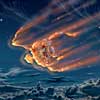
|
 |
|
Saturday:
September 20, 2003 | |
0127 GMT |
 |
Distant star bursts provide key to the origin of galaxies
Revealing images produced by one of the world's most sophisticated telescopes are enabling a team of Edinburgh astronomers to see clearly for the first time how distant galaxies were formed 12 billion years ago.
 FULL STORY FULL STORY
 |  |
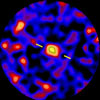
|
 |
Problem shuts down Telstar 4 communications satellite
Loral Skynet said that its Telstar 4 satellite experienced a short circuit of its primary power bus Friday morning, causing the satellite to cease operations. Teams are working to determine the cause of the problem and to restore service on the satellite, if possible.
 FULL STORY FULL STORY
 |  |
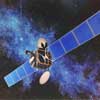
|
 |
|
Friday:
September 19, 2003 | |
0311 GMT |
 |
First supernovae seeded universe with stuff of life
The early universe was a barren wasteland of hydrogen, helium, and a touch of lithium, containing none of the elements necessary for life as we know it. From those primordial gases were born giant stars 200 times as massive as the sun, burning their fuel at such a prodigious rate that they lived for only about 3 million years before exploding.
 FULL STORY FULL STORY
 |  |
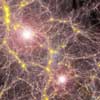
|
 |
'Transparent' galaxy discovered
Astronomers have announced the discovery of a new galaxy, termed Andromeda VIII. The new galaxy is so widespread and transparent that astronomers did not suspect its existence until they mapped the velocity of stars thought to belong to the well-known and nearby large Andromeda spiral galaxy and found them to move independently of Andromeda.
 FULL STORY FULL STORY
 |  |
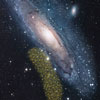
|
 |
IN OTHER NEWS Additional stories making news today
|
 |
China and Europe cooperating on navigation system -- The European Commission, the European Space Agency and the Chinese Ministry of Science and Technology have decided to establish a training, cooperation and information center for satellite navigation in China.
|
 |
|
Thursday:
September 18, 2003 | |
0218 GMT |
 |
Mission management team gets major revamp
In perhaps the most convincing demonstration yet that NASA "gets it," the new chairman of the agency's mission management team Wednesday outlined major changes to improve communications among engineers and managers, to ensure dissenting views are heard and to correct the cultural shortcomings blamed in part for the Columbia disaster.
 FULL STORY FULL STORY
 |  |

|
 |
NASA: 'Iron-clad' evidence for spinning black hole
Telltale X-rays from iron may reveal if black holes are spinning or not, according to astronomers using NASA's Chandra X-ray Observatory and the European Space Agency's XMM-Newton Observatory. The gas flows and bizarre gravitational effects observed near stellar black holes are similar to those seen around supermassive black holes.
 FULL STORY FULL STORY
 |  |

|
 |
IN OTHER NEWS Additional stories making news today
|
 |
Ocean may sponge up some warmth over next 50 years -- NASA's improved global climate computer model, which simulates and projects how the Earth's climate may change, indicates that the oceans have been absorbing heat since 1951 and will continue to absorb more heat from the atmosphere over the next 50 years. This increasing ocean heat storage suggests that global surface temperatures may warm less than previous studies projected, while the ocean acts as a bigger heat sponge.
|
 |
|
Wednesday:
September 17, 2003 | |
0259 GMT |
 |
NASA managers re-think next shuttle launch date
In the coming weeks, NASA managers hope to establish a new target launch date for the resumption of space shuttle missions after they acknowledged Tuesday that a mid-March liftoff wasn't plausible.
 FULL STORY FULL STORY
 |  |
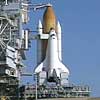
|
 |
Lunar prospecting with Chandra space observatory
Observations of the bright side of the Moon with NASA's Chandra X-ray Observatory have detected oxygen, magnesium, aluminum and silicon over a large area of the lunar surface. The abundance and distribution of those elements will help to determine how the Moon was formed.
 FULL STORY FULL STORY
 |  |
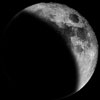
|
 |
IN OTHER NEWS Additional stories making news today
|
 |
Lab research yields the biggest chill -- NASA-funded researchers at the Massachusetts Institute of Technology in Cambridge have cooled sodium gas to the lowest temperature ever recorded -- one-half-billionth degree above absolute zero. Absolute zero is the point where no further cooling is possible.
|
 |
|
Tuesday:
September 16, 2003 | |
0001 GMT |
 |
Prevailing theory about cosmic explosions opposed
University of Chicago scientists have challenged the reigning theory about the puzzling nature of gamma-ray bursts, which signal the birth of black holes.
 FULL STORY FULL STORY
 |  |

|
 |
Patterns in Martian north polar dunes imaged
This Mars Global Surveyor picture shows dark, windblown sand forming spectacular geometric patterns in the north polar sand seas, particularly in regions where strong winds converge from different directions over the course of a year.
 FULL STORY FULL STORY
 |  |
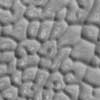
|
 |
|
Monday:
September 15, 2003 | |
0115 GMT |
 |
Satellites sample hurricane 'ingredients' for forecasters
The Atlantic Ocean becomes a meteorological mixing bowl from June 1 to November 30, replete with all needed ingredients for a hurricane recipe. NASA turns to its cadre of satellites to serve up a feast of information to the forecasters who seek to monitor and understand these awesome storms.
 FULL STORY FULL STORY
 |  |
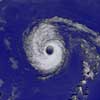
|
 |
IN OTHER NEWS Additional stories making news today
|
 |
Three members added to Stafford-Covey Task Group -- NASA Administrator Sean O'Keefe on Friday announced the appointment of three additional members to the task group assigned to perform an independent assessment of the agency's implementation of the Columbia Accident Investigation Board's recommendations.

NASA administrator supports Columbia trust effort -- NASA Administrator Sean O'Keefe is among the speakers scheduled to formally inaugurate a campaign Tuesday to raise funds to support the families of the crew of the Space Shuttle Columbia. The Columbia Memorial Trust was announced Sept. 16 and will assist the families of Columbia's crew, help erect memorials in honor of STS-107, and pursue various activities that build awareness about space programs.

Connexion by Boeing selects Intelsat for satellite delivery -- Following successful service demonstrations with Lufthansa and British Airways earlier this year, Connexion by Boeing signed a contract with Intelsat for satellite connectivity that will enable airborne travelers to access high-speed Internet and data services via Intelsat's powerful 907 satellite, the newest spacecraft in Intelsat's global fleet.
|
 |

